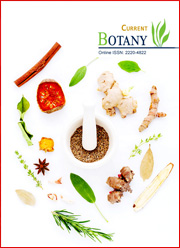Role of Celosia polygonoids juss. in the experimental model of inflammation in wistar rats
Abstract
Inflammation is a prevalent and debilitating disease that affects the human beings vigorously. The study was intended to evaluate the anti-inflammatory activity of whole plant of Celosia polygonoids (EECP). EECP constituting phytoconstituents to treat adjuvant induced inflammation rats to minimize the side effects. The anti-inflammatory activity study was carried out by using adjuvant induced model, cotton pellet, croton oil, formaldehyde, histamine and serotonin induced oedema of Wistar albino strain rats. EECP was injected at different doses such as 100 and 300 mg/kg/i.p., and the study was compared with standard drug Indomethacin (10 g/kg). The results obtained from the above methods were subjected to statistical analysis. The study was conducted paw volume for an each interval time and days carried out. The plant has various phytoconstituents such as reducing sugars, flavonoids saponins, starch, and steroids. Significantly one among those phytoconstituents lessens to oedema of the rodents. The EECP showed the maximum inhibitory activity at (300 mg/kg/i.p.) by dose dependent manner. These inhibitions were statistically significant (p<0.01). From these results indicate that EECP is a bioactive agent and having significant results in anti-inflammatory and action by inhibition of the exudation, and leukocytes recruitment into the inflamed tissues and bone regeneration calcium deposition.





 .
.